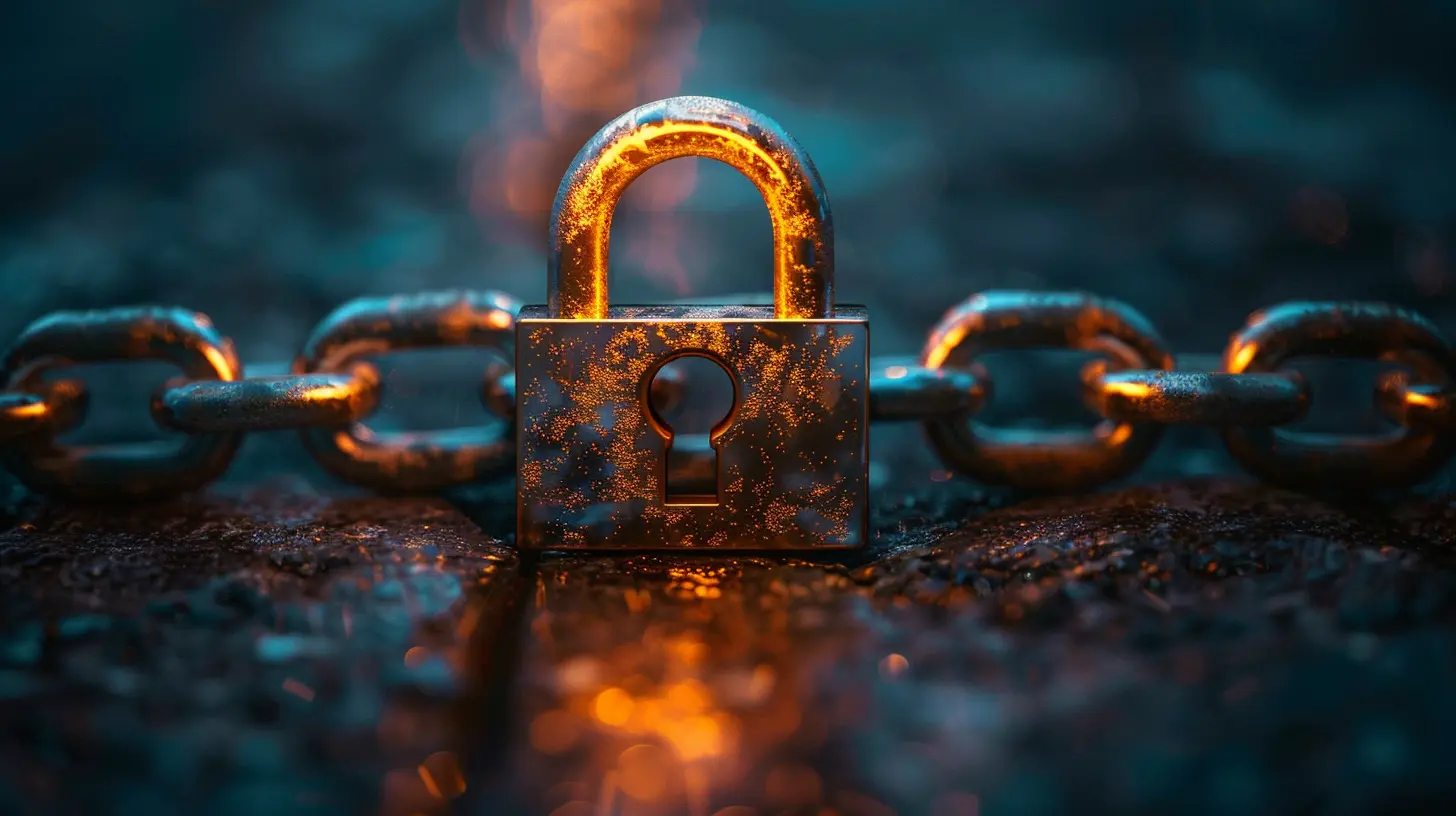How to Protect Your Business Assets from Personal Liability
3 June 2025
Starting a business is like building a house. You lay the foundation, put up the walls, and do everything in your power to make it strong and sustainable. But what if a storm (a lawsuit, financial crisis, or unexpected debt) threatens to bring it all crashing down? That’s where asset protection comes in.
If you own a business, separating your personal and business finances is not just a good idea—it’s essential. Without the right protections in place, your personal home, savings, and even your car could be up for grabs if your business faces legal trouble. Scary, right? Don’t worry—I’ve got you covered.
In this guide, we’ll dive deep into how to protect your business assets from personal liability. We'll keep it simple, practical, and—dare I say—fun. So, let's get started! 
1. Choose the Right Business Structure
If you’re operating as a sole proprietorship, you’re basically walking on financial thin ice. In this setup, there’s no legal difference between you and your business, which means your personal assets are fair game in a lawsuit. Yikes!The good news? You can limit your personal liability by choosing a more protective business structure:
LLC (Limited Liability Company)
An LLC acts as a shield between your personal finances and your business operations. If someone sues your business, they can only go after the company’s assets—not your personal ones (unless you mess up big time, but we’ll cover that later).Corporation (S-Corp or C-Corp)
A corporation takes asset protection up a notch. It’s a separate legal entity, meaning your personal assets are typically off-limits. However, corporations require more paperwork and compliance, so they’re better suited for larger businesses.Limited Partnerships (LP) and Limited Liability Partnerships (LLP)
If you’re running a business with partners, these structures help protect your personal assets while allowing flexibility in management and ownership.Bottom line? Pick a business structure that offers legal protection—because hoping for the best isn’t a strategy. 
2. Keep Your Business and Personal Finances Separate
Imagine running a lemonade stand and using your personal piggy bank to buy lemons. Now imagine a customer sues you because your lemonade was too sour. If you’ve mixed your business and personal finances, your piggy bank (and everything else you own) could be in danger.Here’s how to keep things separate:
- Open a Business Bank Account – Keep your business funds in a dedicated account. This way, there’s a clear distinction between personal and business money.
- Get a Business Credit Card – Use it exclusively for business expenses. Charging personal expenses to your business account is a red flag in court.
- Pay Yourself a Salary – Instead of dipping into company funds whenever you need cash, set up a structured salary or owner's draw.
These steps strengthen your liability protection and make your finances cleaner (which accountants will love you for). 
3. Purchase Business Insurance (A Lifesaver!)
Insurance might not be the most exciting topic, but trust me—it’s a non-negotiable when it comes to asset protection.Here are the must-have insurance policies:
- General Liability Insurance – Covers lawsuits from bodily injuries, property damage, and advertising mistakes (yes, even typos can get you sued).
- Professional Liability Insurance – If your business provides advice or services, this protects you from lawsuits over mistakes or negligence.
- Workers’ Compensation Insurance – Required if you have employees; covers work-related injuries.
- Cyber Liability Insurance – Essential if your business deals with sensitive customer data.
Think of insurance as a safety net. You might not need it every day, but when you do, you’ll thank your past self for getting it. 
4. Use Contracts for Everything
Handshakes are great for friendly agreements, but in business? Not so much.Without proper contracts, your business is exposed to legal risks. Whether it’s a deal with a vendor, a client, or an employee, a contract clarifies expectations, rights, and responsibilities—and most importantly, protects you!
Key Contracts You Should Have
- Client Agreements – Outline the scope of work, payment terms, and legal protections.- Employee/Independent Contractor Agreements – Define roles, expectations, and legal responsibilities.
- Partnership Agreements – Ensure you and your business partners are on the same page regarding ownership, responsibilities, and profit-sharing.
- Nondisclosure Agreements (NDAs) – Protect proprietary information and prevent leaks.
A solid contract can be your best legal defense—don't run your business without them.
5. Avoid Personal Guarantees (Whenever Possible)
A personal guarantee is like cosigning a loan for your business—except if things go wrong, creditors can go after your personal assets.Many lenders and landlords require personal guarantees, especially for new businesses. If you can’t avoid them entirely, try to:
- Negotiate a limited guarantee rather than an open-ended one.
- Build business credit so your company can qualify for loans on its own.
- Offer collateral from the business, not personal assets.
Before signing anything, read the fine print—or better yet, have a lawyer review it.
6. Don’t Mix Business and Personal Debt
Using personal credit cards or loans to fund your business is a common mistake. While it might seem convenient, it blurs the line between personal and business liabilities.Instead, build your business’s credit so you can:
- Apply for business-specific loans and credit lines.
- Qualify for better lending terms.
- Keep your personal assets out of harm’s way.
Your business should stand on its own two feet financially—don’t let it drag your personal finances down with it.
7. Follow Corporate Formalities (For LLCs & Corporations)
Setting up an LLC or corporation is step one—but to maintain liability protection, you need to follow the rules.For LLCs, this includes:
- Filing an operating agreement (outlines management and financial structure).
- Keeping meeting minutes if required by your state's laws.
For corporations, the requirements are stricter:
- Hold annual shareholder meetings.
- Maintain proper records and bylaws.
- Avoid commingling funds (mixing business and personal finances).
Ignoring these formalities can lead to "piercing the corporate veil", which means courts could hold you personally liable for business debts. Not good!
8. Consider Setting Up a Trust
This might sound fancy, but forming a business asset protection trust can provide an extra layer of security.A trust can:
- Hold ownership of business assets, shielding them from legal claims.
- Offer additional confidentiality in certain states.
- Prevent creditors from easily accessing your assets.
Trusts require expert setup, so consult an attorney who specializes in asset protection.
Final Thoughts
Running a business is a rollercoaster ride—with exhilarating highs and unexpected drops. The last thing you want is to wake up one day and find your personal assets on the line because you didn’t take the right precautions.By choosing the right business structure, keeping finances separate, using contracts, and securing insurance, you can safeguard your personal assets from business liabilities. It's all about building a protective moat around your hard-earned wealth.
Because let’s be real—your home, savings, and car shouldn’t be at risk just because your business hits a rough patch. Take control now, and thank yourself later.
all images in this post were generated using AI tools
Category:
Asset ProtectionAuthor:

Zavier Larsen
Discussion
rate this article
3 comments
Myles Roberson
Don’t leave your business vulnerable! Implement robust asset protection strategies now. Your hard work deserves security—don’t wait until it’s too late!
June 18, 2025 at 5:05 AM

Zavier Larsen
Absolutely! Protecting your business assets is crucial. Implementing strategies now can safeguard your hard work and ensure your business remains secure against potential liabilities. Don’t delay!
Felicity Harper
Great insights! Protecting your business assets is crucial. Implementing strategies like forming an LLC and keeping personal and business finances separate can really make a difference. Looking forward to more tips on safeguarding our entrepreneurial journeys!
June 7, 2025 at 4:27 AM

Zavier Larsen
Thank you! I'm glad you found the insights helpful. Stay tuned for more tips on safeguarding your entrepreneurial journey!
Indie Black
This article offers valuable strategies for safeguarding business assets from personal liability, emphasizing the importance of proper legal structures and risk management practices. Great insights!
June 3, 2025 at 12:37 PM

Zavier Larsen
Thank you! I'm glad you found the strategies helpful for protecting business assets. Your feedback is appreciated!



